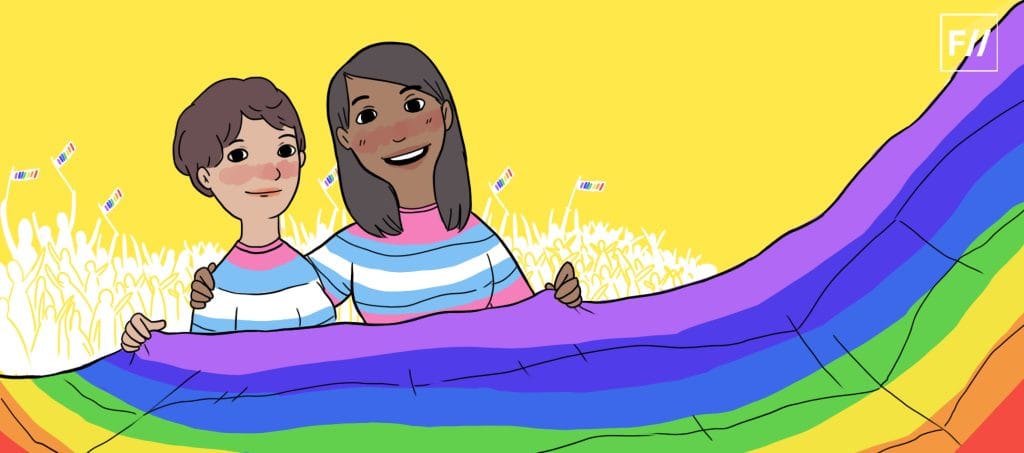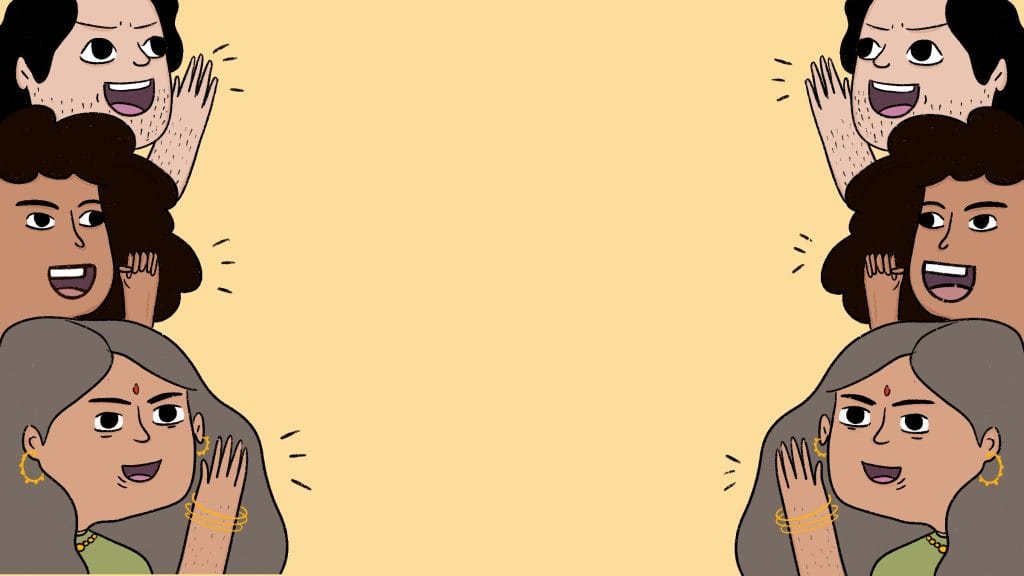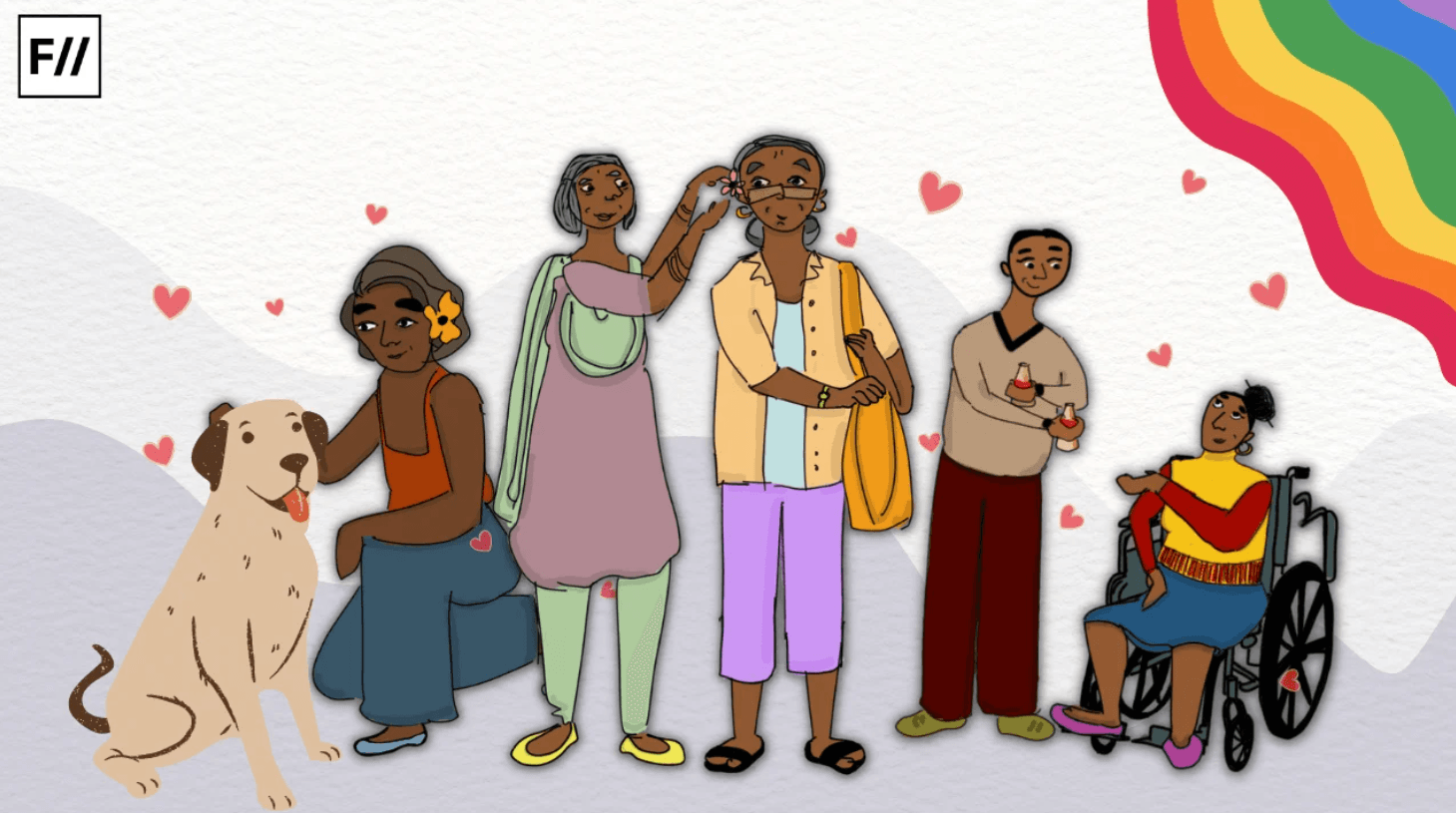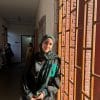The concept of chosen family has existed within the LGBTQIA+ community and other nonheteronormative communities as a safe space that differs from the historical “traditional” family norms. It is a group of people who actively choose each other to play a significant role in each other’s lives, even though they are not biologically or legally related.
According to the SAGE Encyclopaedia of Marriage, Family, and Couples Counselling, “chosen families are nonbiological kinship bonds, whether legally recognised or not, deliberately chosen for the purpose of mutual support and love.” These chosen families could consist “of friends, partners and ex-partners, biological and nonbiological children, and others who provide kinship support.”
Chosen families are made up of people with whom we share a connection or common experiences. In contrast, traditional families—typically defined by the institutions of marriage and biological reproduction—historically have excluded the LGBTQIA+ community due to legal, social, and cultural bindings. For much of the history, the legal recognition of marriage and parenting rights was denied to these individuals, thus making the traditional family structures inaccessible. As a result, chosen families have served as a vital source of love, support and resilience.
Traditional families: Setting patriarchal and heteronormative norms
The traditional families that are structured by heteronormativity while also positioning men as heads of households reinforce that heterosexuality is normal, reinforce the gender inequalities and also limit women’s autonomy in the households. By doing so, it can be said that traditional families position homosexuality as inferior or abnormal while also maintaining the rigid gender roles that women are subjected to in these households. Thus, the idea of traditional families presumes heterosexuality within family structures; women being subjected to domination and domestic and emotional labour are norms, and anything that diverges from this system of existence within a society is foreign or other.

Feminist theorists for long have critiqued the traditional nuclear families and the patriarchal powers that it reproduces. Because gender is socially constructed, and gender roles are learnt rather than determined by biology. Traditional families thus become the primary institutions that socialise people into these gender roles.
In Feminist Theory: From Margin to Centre, bell hooks critiques the traditional nuclear family structure as a site for patriarchal domination and proposes alternative models for building relationships rooted in feminist values and encourages sisterhood among women irrespective of the layers to their identity. She emphasises the need to reimagine family and the community structures that support mutual care and egalitarian relationships. Thus, the idea of the Chosen family disrupts the rigid roles and patterns assigned by traditional families.
Audre Lorde, a Black lesbian feminist, in her multiple works, has highlighted the importance of community and love in resisting systemic oppression.
“The sharing of joy, whether physical, emotional, psychic, or intellectual, forms a bridge between the sharers which can be the basis for understanding much of what is not shared between them and lessens the threat of their difference.“
Challenging the norm through collective resistance
Often, failing to fit within this heteronormative system causes marginalisation or ostracisation for those individuals within the LGBTQ+ community. People who experience sexuality in differing ways do not fit into this rigid binary of gender roles assigned by the traditional family systems. Thus, when these individuals are rejected by these systems, they don’t receive the proper support that is needed to fully grow and thrive in this space between societal norms. As a result, many LGBTQ+ individuals turn to chosen families, as alternate systems, to support each other, to aid and nurture each other’s growth, and to help heal the wounds inflicted by systems that fail to support nonheteronormative individuals.

While the idea of non-biological relationships is not solely related to the LGBTQIA+ community and can be practised within varied cultures and communities, within the LGBTQIA+ community, the practice of going against what is considered the “norm” becomes a tool of resistance, one of survival.
Chosen families do not come in neatly packaged boxes where everyone is assigned a particular gender role, and the importance of these families is different for everyone within them. Typically, these families have originated as a response to the societal and familial rejection individuals face in their legal and biological families.
Sara Ahmed, in The Cultural Politics of Emotion, talks about how emotions bind individuals to communities and serve as political functions. Thus, the individuals within the chosen family might not be biologically related, but they share the feelings of rejection as well as the resistance of surviving within the systematic oppression inflicted upon them, which becomes a tool to reclaim their identity and dignity. And because of shared circumstances, chosen families are considered more emotionally and psychologically supportive than biological families.
Mental health, support and autonomy
Due to the increased cases of familial rejection and abandonment within the LGBTQIA+ community, close relationships with individuals outside of one’s family of origin—chosen families—serve as an important source of social support. The rejection from the biological family is strongly associated with mental health problems, substance abuse and sexual risks; thus, at such crucial times, a support system is necessary to exist within the toxic societal systems. It is also important to note that whether the family is biological or chosen, the necessity for this support system is strong in adolescence. Having these community and familial bonds is essential, and the influence these societal situations have on adolescence is particularly reflected in their transition to young adults.
Teenage is a challenging transition, and for those struggling with their gender identity, the process can be even more complex and emotionally taxing. Thus, it becomes crucial for these young individuals to have access to a strong and affirming support system that can nurture them and provide a space to grow and embrace their identities while also fighting the discrimination inflicted upon them. These chosen families create bonds with trust, empathy and mutual care and thus help turn the term family into a social practice of human kindness and relation rather than being limited to the strict roles that are assigned within the traditional families.
From a feminist lens, it can be argued that the Chosen family gives a sense of autonomy to the individuals—a right to define one’s relationships outside the societal norms and what is deemed fit according to the cultural practices. Traditional kinship systems often come with implicit obligations and control, whereas chosen families are built on consent, intentionality, and reciprocal support. The roles are not pushed onto people, and individuals have the agency to choose their roles and relations within the chosen families.
The idea of creating safe spaces and taking care of one another beyond romantic or sexual attraction has existed among queer individuals, especially transgender folks, for centuries. It strengthens the non-biological forms of kinship as a form of resistance against the heteronormative and cisnormative structures of society.
Chosen families represent more than just alternatives to traditional family structures—they become the space for resistance, survival and liberation. The chosen families don’t threaten the existing family structures; rather, they add to it. The chosen families, through shared experience of marginalisation, form human bonds that are beyond societal norms—reclaiming the meaning of kinship as a space for love without conditions, love that goes beyond sexual or biological terminologies.
About the author(s)
Reeba Khan is a Political Science student at Delhi University. As a writer and student journalist, she has a keen interest in issues of identity, conflict, and politics of belonging. She writes to remember and to resist





